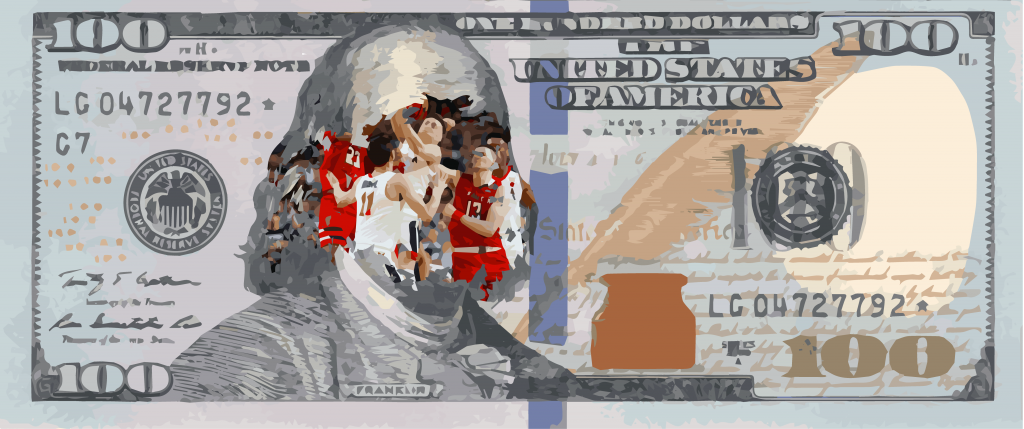The National College Athletic Association currently has and always has had a policy of amateurism. College student-athletes are worked what many consider a “full-time job” without being paid. If the NCAA was to pay student-athletes, the athletes would benefit greatly. Many college athletics would benefit from this and so would the school itself. By paying NCAA student-athletes, more kids would graduate or stay in college longer. In addition, a college sport, consumes the athletes life since they are worked so much, they deserve to be paid for this. College athletes are used by the schools and the NCAA through advertising, which allows the schools to make profit, which the athletes get none of.
One benefit of paying college athletes is that they would then stay in college longer. For example, currently, to reach the NBA players have to play at least one year in college and to reach the NFL one has to play two years of college football. This rule causes many college athletes to leave right after their first or second year of college, rather than graduating. In 2017, according to the NCAA’s annual report on graduation rate success in college athletes, football players in all divisions had a 75 percent rate. That is 1 in 4 athletes in all of college football not graduating. Another example, is University of Kentucky’s men’s basketball team in the 2018-2019 season. Out of the seven freshmen on the team, three of them stayed at Kentucky, while three declared for the draft and one transferred. Out of the three sophomores on this year’s team, two declared for the draft while the other transferred. The one senior graduated, so did a graduate student and the only junior stayed too. The fact that all of these younger players leave so soon after they join the college team shows the eagerness to be payed. If they were being paid then more players would stay in college longer. This helps the colleges since their graduation rate goes up and their teams would be stronger since players would stay.
College sports are incredibly time consuming. According to Forbes, the average Division I college football player devotes 43.3 hours each week to the sport, that is 3.3 more than the average work week. Athletes have to devote an average 43.3 hours each week while still having a college workload, without any pay. Athletes are forced to miss class for games, especially during the March Madness tournament and college football playoff. They are missing class for games that are televised receiving millions of views and make a great amount of revenue but they get no money. The NCAA basketball tournament requires players to miss more than six days of class according to Forbes. Even at some schools, the NCAA men’s basketball championship may require them to miss up to ¼ of classes during the spring semester at college. Clearly, these players are pulled out of class and their lives are disrupted by their athletics, but they are receiving no paychecks for it.
Athletes bring in a large amount of revenue to their schools, and deserve the credit. Student-athletes names and images are often used on products or advertisements, it is only fair for them to receive some of the profits. Tyson Hartnett from The Huffington Post writes “Coaches will receive bonuses for getting to the playoffs, winning championships, or breaking school records. You know what athletes receive as a bonus? Nothing.” He like many others, acknowledges the hard work of coaches, but also the performance of the athletes which goes unpaid. In 2014, the University of Alabama made $143.3 million from their athletics, that is more than all 30 of NHL teams and 25 of the 30 NBA teams at the time. In 2018, Coach Krzyzewski made $8,982,325, while not a single player on Duke Men’s basketball made money. In addition, according to Forbes in 2014 the highest paid official in 40 out of the 50 states in the U.S.A. was their head coach of the states university men’s basketball or football team. Much of this revenue comes because of the players and their talents. In fact, Georgetown’s Patrick Ewing’s talents during the 1982-1983 basketball season helped increase 47 percent undergraduate applications, and a forty-point increase in freshman SAT scores during the next years applications. It is unfair for the NCAA to exploit players for their talents and gain revenue, while the athletes get none.
In conclusion, to create a better and more fair system for athletes the NCAA must abolish their policy of amateurism, and pay the players.
Grace Gluckow
staff writer
Graphic: Logan Richman

